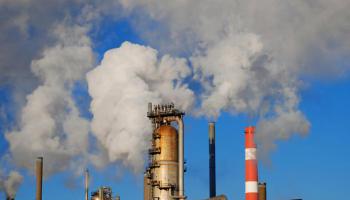In Utero Babies’ prenatal exposures to pollution can boost behavioral risks

PREGNANCY IS AN IMPORTANT TIME for both mom and baby, which is why moms-to-be take special care to live right so their children are born healthy. That’s relatively easy when it comes to things women can control, like avoiding alcohol, quitting smoking and eating well. But what about pollution in the air they breathe?
In the first study of its kind, researchers report that expectant mothers’ exposure to pollutants—specifically polycyclic aromatic hydrocarbons (PAHs), which are contained in car exhaust and cigarette smoke—can lead to a fourfold increase in the risk of anxiety problems in their children at age 6. The scientists measured PAH levels in the babies’ cord blood and the mothers’ blood at delivery and found a similar association: the higher the levels of blood markers for PAH, the greater the chance the children later showed symptoms of anxiety, depression or difficulty paying attention.
Most PAH exposure in cities—all the mothers in the study lived in New York City—is inescapable. But pregnant women can lower their risks by not smoking, avoiding secondhand smoke and ventilating rooms when grilling at home. Making sure both mom and baby also eat plenty of foods high in antioxidants to counteract potentially toxic exposure can help too.

 Print
Print